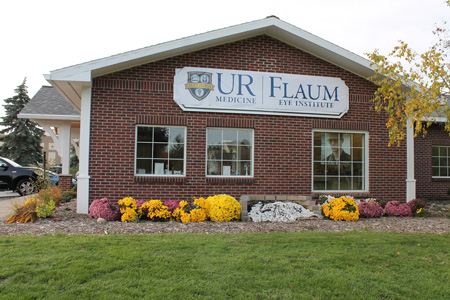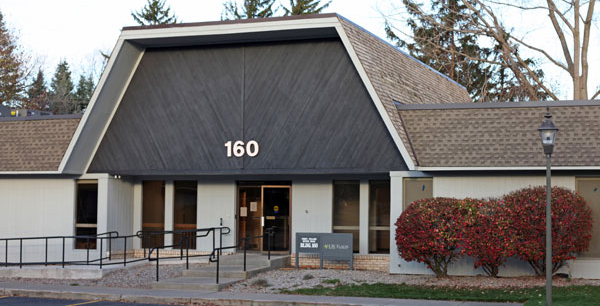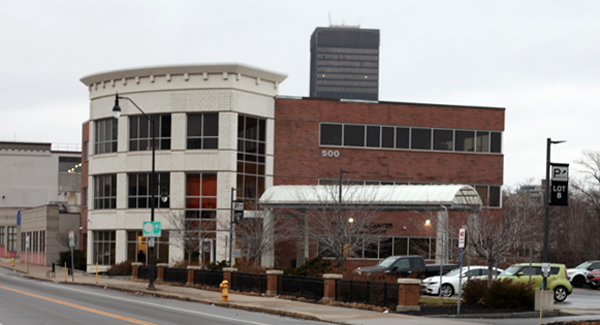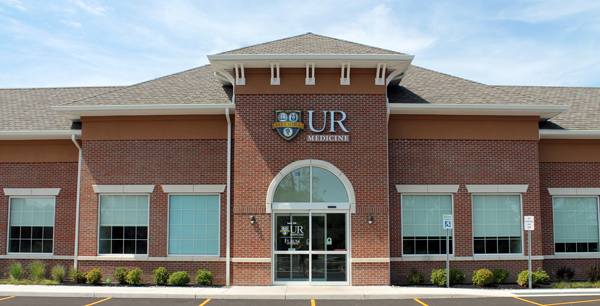Cataracts
Make Appointments & Get Care
What are Cataracts?
Most cataracts result from a natural change to your eye that causes your vision to become cloudy or less sharp over time.
As we age, proteins in the lenses of our eyes build up. When these proteins clump together, they form opaque clusters that eventually cloud the lens. This is called a cataract, and it means less light can pass through. What light does pass through the protein clusters is scattered, like looking through a dirty window.
Left untreated, cataracts can cause severe vision loss. Fortunately, treating cataracts involves a safe, relatively simple surgery that can restore excellent vision for years to come.
Schedule a consultation or request a free informational kit.
Call (585) 273-EYESUR Medicine's Treatments for Cataracts
Modern cataract surgery is one of the most commonly performed procedures in the world and provides excellent results. For safety, our surgeons only operate on one eye at a time, even though cataracts may be present in both.
This is an outpatient procedure, allowing you to go home after a short stay in one of our recovery rooms. Throughout the operation, you will be awake but sedated. Many describe the experience as being in a dream state.
The procedure itself uses an ultrasonic probe to break up the cataract, and the pieces are removed through incisions. An artificial lens is then inserted where the cataract was. This new lens, called monofocal, has a fixed focus, meaning it works best at one range.
Doctors usually recommend that you get a lens for distance vision to make driving easier. Because of normal aging to your eye, this means that you will likely need reading glasses to correct your near vision, or bifocals to see close up and reduce astigmatism (which can make distance vision blurry or cause halos at night).
Recovery from cataract surgery is usually fast, depending on your overall health, the condition of your eye, and how developed your cataract is. During the first week you may notice a dramatic improvement in your eyesight, but final vision may not occur until a month or more.
This traditional type of cataract surgery is covered by private insurance or Medicare, with minimum out-of-pocket expenses to the patient. And it is very effective and safe.
Questions? Email us at cataract@urmc.rochester.edu.
What Sets Us Apart?
Thanks to advances in technology, the Flaum Eye Institute offers many recently developed cataract surgery tools that have one goal: Reducing your dependence on glasses or contacts after your cataract surgery. These advanced options include new “lifestyle lenses” that correct vision at wider distance ranges or reduce astigmatism, and precision corneal incisions that can also correct astigmatism.
For each of these advanced procedures, Flaum Eye Institute uses new laser-assisted technology that greatly reduces the use of blades and ultrasound and can also correct astigmatism. Flaum Eye Institute was the first surgery center in the Rochester metropolitan area and surrounding region to offer this laser-assisted upgrade.
Our main facility includes our own surgery center on the second floor of Strong Memorial Hospital, just below the Eye Institute’s faculty practice clinic. We have a second ambulatory surgery center located on Sawgrass Drive.
Equipped with the most up-to-date surgical equipment, we’re able to routinely perform complex procedures that were once referred to eye care centers hundreds of miles away, saving you time and keeping you close to home.
We’re also part of National Clinical Trials and are ranked in the top 20 in eye research funding in the United States. On our research faculty is also one of the world’s most celebrated researchers in the design of devices and lenses used in cataract surgery. So, you can be assured that our care is informed by the latest scientific discoveries.
Providers
Locations
View All LocationsWe serve you in the Rochester metropolitan area and surrounding region.
View All Locations8 locations
Strong Memorial Hospital
210 Crittenden Boulevard
Rochester, NY 14642
1701 Lac De Ville Boulevard
Rochester, NY 14618
45 Liberty Street, Suite 3
Batavia, NY 14020
Tobey Village Office Park
160 Office Parkway
Pittsford, NY 14534
Finger Lakes Center
738 Pre-Emption Road
Geneva, NY 14456
500 South Clinton Avenue, Suite 104
Rochester, NY 14620
Shares a parking lot with Noyes building
48 East South Street, Suite 110
Geneseo, NY 14454
Patient Education & Support
Financing
Insurers will only cover part of the cost of advanced technology cataract procedures. Many patients decide that the benefit of less eyeglass dependence and quicker recovery is worth paying an additional fee above what insurance covers. If this option is right for you, we also offer convenient financing programs that can be tailored to fit your budget. Contact us for more information.




